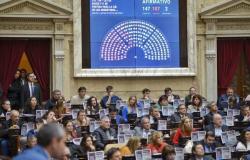After having taken them to villages and forgotten areas of Senegal, Kenya, Guinea Bissau or this February to Benin, the engineer and pottery worker Jaime Aguirre has shown and shared his artisanal techniques to condition water wells and sanitation systems in a new … area of the African continent, in Njombe, south of Tanzania.
«For us, each course is a place to experiment and try new techniques, adapting to the regions where we work. In this case, the soils have poor aquifers and we have developed a new double piping technique that allows the water to be optimally extracted,” describes the potter who recently arrived from his trip in a new episode of his Mobile Water School. Like everything in the organization Technologies Applied to Human Development (TADeH), this new technique is available free of charge to all who can benefit. Thus, the videos they have made will be added to the media library of technology video tutorials that the Mobile Water School has free access to.
From the water poverty of the soils in the area where this new course was taught, Aguirre and his colleagues received students from different regions of Tanzania. And also one from Mozambique, who needed three days by bus to arrive, join the group and train. He takes everything he learned back to share it with his neighbors, following the philosophy of this school.
Using common materials, which everyone can easily find in their environment and at low cost, the course taught participants, both theoretically and practically, techniques to provide access to water and sanitation, constructions that are easy to repair and low cost. Thus, they taught them how to build a manual pump, they manually drilled two wells, they built a complete rainwater collection system with an underground cistern with a capacity of 8,000 liters, they equipped shower, bathroom and sink services… As an enrichment, they built two types of solar heater for a set that integrates them to supply hot water. “It is very convenient in that area, since it is 2,000 meters high and the nights are cold, close to 10 degrees,” explains Aguirre.
After this training, the objective is for students to replicate what they have learned in their environment, improving isolated rural areas where resources are scarce. Thus, these students become technicians who can offer their services at low cost to their neighbors, generating employment and improving access to water and health in those areas. With the satisfaction of the objectives achieved, a task that caught the attention of national television that went to the place to record a report, Aguirre is already planning a new trip in August to Benin to continue with the courses.
#Argentina





